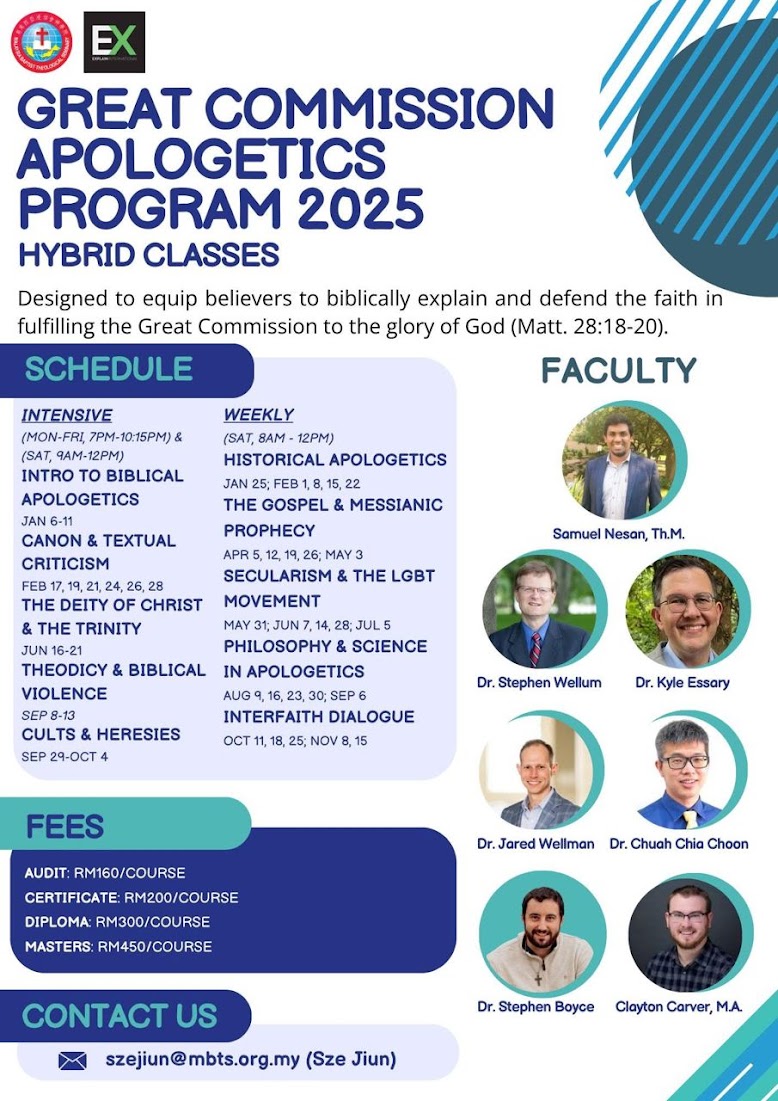Introduction
Coming from different backgrounds, the two apostles, Peter and Paul became great leaders in their own ways. Peter was handpicked by Jesus along with the other disciples to become the apostle to the Jews while Paul was a persecutor of the church but later he became the greatest apostle to the Gentiles (Romans 1:13). He became the founder of churches in Asia Minor and Greece, and he had great influence on the Church through the centuries (Buttrick 1962, 681).
Peter, whose original name was Simon (or Simeon), was also known as “Cephas” (Aramaic) or “Petra” (Greek). Translated, it means “Rock” or “Stone” (Gundry 1981, 121, 147). He was a man with low education, and somewhat unrefined in his character. A fisherman by profession, Peter was later called to fish for men (Matthew 4:19). He was designated as the leader of the Jerusalem church for at least the first 15 years of the church (Acts 1-12) (Buttrick 1962, 753).
Meanwhile, Paul was an educated Pharisee who had come under the tutelage of a well-known Jewish scholar, Rabbi Gamaliel (Acts 22:3). He was described by early church fathers as “small in stature, bald-headed, bowlegged, of vigorous physique, with meeting eyebrows and a slightly hooked nose, and full of grace” (Buttrick 1962, 689). Before his conversion, Paul was known as Saul of Tarsus. Tarsus was a city in Asia Minor (Gundry 1981, 216). Throughout the New Testament, he was known as the Apostle to the Gentiles (Romans 1:13) while Peter was the leader of the Jerusalem church.
What differentiates them from the rest of the people were their strong characters and passion, but when God broke them, they were given new strength to carry on with the task of bringing the gospel to the Jews and the Gentiles. This study shows that God can use people with different styles of leadership to lead the church.
We will look at the characteristics of their leadership and see how we can draw lessons from their lives. A few virtues stand out in both characters.
A Critical Comparative Analysis of leadership traits
It
should be noted that both Peter and Paul, despite having strong characters, did
not become great leaders by virtue of their personality alone. Both had to go
through the feeling of brokenness as part of their preparations to lead. Peter,
for example, felt remorseful after he denied Jesus three times (Mark 14:66-72)
while Paul felt humbled after his encounter with Jesus whom he had been
persecuting (Acts 9:1-9).
Both
had great influence on the early church. J. Oswald Sanders defines leadership
as an “influence, the ability of one person to influence others”
Paul, too, had great influence on the early church.
Buttrick tells us that “his letters to the churches of Galatia, to
Thessaloniki, to Corinth or Philippi, are not just the serious communications
of a Christian theologian; it is Paul writing, and the unmistakable flavour of
his personality pervades them.”
Well-known author, John Maxwell describes the
apostle Paul as “an adroit apologist, able to reason with the best contemporary
philosophers of Athens (Acts 17: 18-34). He was a bold preacher of the gospel,
helping spread the Word of God to all of Asia (Acts 19: 10). And he was an
incredible instrument of healing, miracles occurred even when people touched an
apron he had worn (Acts 19: 11- 12). But none of these things can compare to
his contribution as a leader ....”
People respected and followed Paul because they
saw in him all-around leadership characteristics pertaining to self,
interpersonal relationship, spiritual aspect, and functional competency. Those
characteristics naturally set him apart from the multitude and made him a
leader. He was able to influence his followers by demonstrating those
characteristics. This is the essence of true spiritual leadership. And this is
so lacking in today's pastoral leadership.
J. Oswald Sanders wrote about the importance of
qualities of character that differentiated the leader from the rest of the
people. “The spiritual leader … influences others not by the power of his own
personality alone but by that personality irradiated and interpenetrated and
empowered by the Holy Spirit. Because he permits the Holy Spirit undisputed
control of his life, the Spirit’s power can flow through him to others
unhindered.”
Peter demonstrated his kindness and goodness to the lame beggar (Acts 3:1-10). Although he and John were on the way to the temple to pray, he stopped to heal the man. In Joppa, he also had time to raise a woman, Tabitha who had passed on (Acts 9:36-43).
I find that Peter bows to pressure, whereas Paul stood against any form of pressure. When Peter was approached by the circumcision party, he relented from having fellowship with the Gentile believers. Paul rebuked him. Notwithstanding, both were faithful to their calling and their commitment to Christ. Buttrick tells that “the centrality of Christ is evident on every page of (Paul’s) letters.” (Buttrick 1962, 688). This is Paul’s faithfulness to Jesus Christ, his Lord. Romans 1:14-15 also shows his faithfulness to the gospel of Jesus Christ. Peter, on the other hand, showed faithfulness to Christ when did what the Lord wanted him to do – to tend the sheep. In his epistles, Paul spoke a great deal about self-control (1 Corinthians 9:25; 2 Timothy 1:7, 2:9, 15). He also subjected his bodily desires and his mind to some form of self-control (1 Corinthians 9:25-27). In 2 Corinthians 10:4-5, Paul wrote about another battle that he was involved in. Peter also wrote about self-control in his epistle to the early Christians (2 Peter 1:6).
Their strengths and weaknesses.
Love, Joy and Peace: Although the New Testament never depicted
Peter or Paul as loving men, their
shepherding care towards the church was a sign of their love. Jesus told Peter to “tend His sheep”. Paul also took great
pains to write his epistles to provide guidance to the early church. Both Peter
and Paul were in prison, and despite their incarceration for the defence of the
gospel, they were filled with joy.
Even when they were locked up, they exhibited peace in their hearts knowing that they were in chains because of
the gospel. This was the peace that kept them from complaining about their fate
(Romans 8:38-39).
The rest of the
qualities: Peter was
an impatient man, but after denying Jesus three times, he turned on a new leaf.
He exhibited a great deal of patience
while writing the epistles of 1 Peter and 2 Peter. A good example is how he put
in efforts to write the introduction (12 verses in 1 Peter 1), before he
touched on the objective of his letter in 1 Peter 1:13. He treated the
believers as “newborn babes” (1 Peter 2:1-3) and spoke to them in all gentleness. Paul also dealt with the
believers with gentleness. He gave
an option to the Corinthians: “What do you desire? Shall I come to you with a
rod, or with love and a spirit of gentleness?” (1Corinthians 4: 21). He
developed patience after spending a
“silent period” of 10 years away from public life in his hometown, Tarsus.
Peter
demonstrated his kindness and goodness to the lame beggar (Acts
3:1-10). Although he and John were on the way to the temple to pray, he stopped
to heal the man. In Joppa, he also had time to raise a woman, Tabitha who had
passed on (Acts 9:36-43).
I
find that Peter bows to pressure, whereas Paul stood against any form of
pressure. When Peter was approached by the circumcision party, he relented from
having fellowship with the Gentile believers. Paul rebuked him. Notwithstanding,
both were faithful to their calling and their commitment to Christ. Buttrick
tells that “the centrality of Christ is evident on every page of (Paul’s)
letters.”
In his epistles, Paul spoke a great deal about self-control (1 Corinthians 9:25; 2 Timothy 1:7, 2:9, 15). He also subjected his bodily desires and his mind to some form of self-control (1 Corinthians 9:25-27). In 2 Corinthians 10:4-5, Paul wrote about another battle that he was involved in. Peter also wrote about self-control in his epistle to the early Christians (2 Peter 1:6).
Their strengths and weaknesses.
A compulsive
and overconfident character, Peter vowed to prevent Jesus from being arrested
earning him a rebuke from the Lord himself: "Get behind Me, Satan! You are
a stumbling block to Me; for you are not setting your mind on God's interests,
but man's" (Matthew 16:23). He had just confessed Jesus as the Son of the
living God (Matthew 16:16). He cut off the ear of the High Priest’s slave
Malcus with his sword. His quick response, which was one of his strengths,
turned out to be Peter’s weakness as well. The same man later denied Jesus
three times (Matthew 26:74). On the other hand, although Paul was a man of
actions (Act 8:1-2, 20), this became his weakness. Despite being a leader among
the persecutors of the early church, being extremely zealous and filled with
the wrong passions, Paul’s weakness was that he could not see the Truth until
the encounter with Jesus on his way to Damascus.
The
two characters came to a personal clash when Peter stayed away from the
Gentiles for fear of the criticisms from the Jews
As
Sanders puts it, “Courage of the highest order is demanded of a spiritual
leader – often moral courage and frequently physical courage as well”
Peter
denied the Lord three times (Matthew 26:69-75) but subsequently after feeling
remorseful over the incident, he appeared before some 3000 people in the
audience publicly declaring the gospel of Jesus Christ without fear of
persecution. Peter was later thrown into prison, but he was never withdrew the
one message that he preached until the day when tradition tells us that he was
crucified upside down.
Lessons for today’s leaders
From the study of these two
characters, we can draw a few important lessons for today’s leaders:
(a) Leaders must exhibit the nine qualities of
the fruit of the Spirit
(b) One’s background does not determine how
good a leader one becomes. Good leadership is the result of one’s willingness
to submit to the lordship of Christ, not based on one’s educational background or
strength of character.
(c) Good leaders stand out from the rest in
the crowd and they have tremendous influence on the people. They are faithful
even to the point of death.
Good
leaders set good examples for the people to follow. The examples set by Peter
and Paul provide us a model to emulate. As Paul puts it, “Be imitators of me,
just as I also am of Christ” (1 Corinthians 11:1). Can we as church leaders
also set good examples for the future generations of Christians?
References
Buttrick, George Arthur, ed. The
Interpreter’s Dictionary of the Bible (K-Q) - An Illustrated Encyclopedia.
Nashville, TN: Abingdon Press, 1962.
Cole, Neil. Organic Leadership:
Leading Naturally Right Where You Are. Grand Rapids, MI: Baker Books,
2009.
Cortrell, David. Leadership ...
Biblically Speaking. Dallas, TX: CornerStorne Leadership, 1998.
Gundry, Robert H. A Survey of the New
Testament. Vol. 381. Grand Rapids, MI: Zondervan Publishing House , 1981.
Maxwell, John C. The 21 Most Powerful
Minutes in a Leader's Day - Revitalise your spirit and Empower your
leadership . Nashville, TN: Thomas Nelson , 2007.
Sanders, J. Oswald. Spiritual
Leadership. London: Marshall, Morgan & Scott, 1981.
Tenney, Merrill C. New Testament
Times. Grand Rapids, MI: Wm. B. Eerdmans Publishing Co., 1965.




Comments
Post a Comment